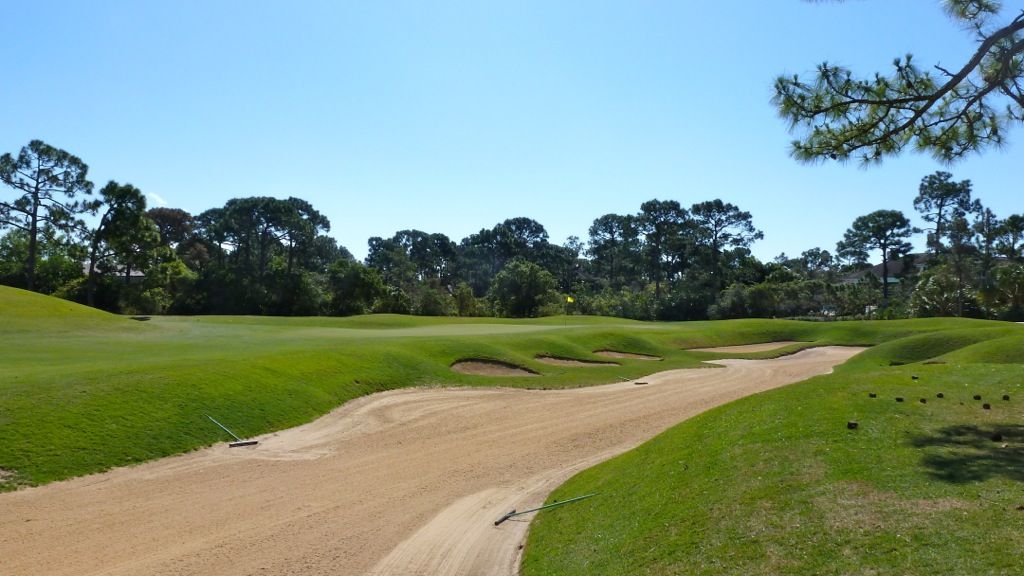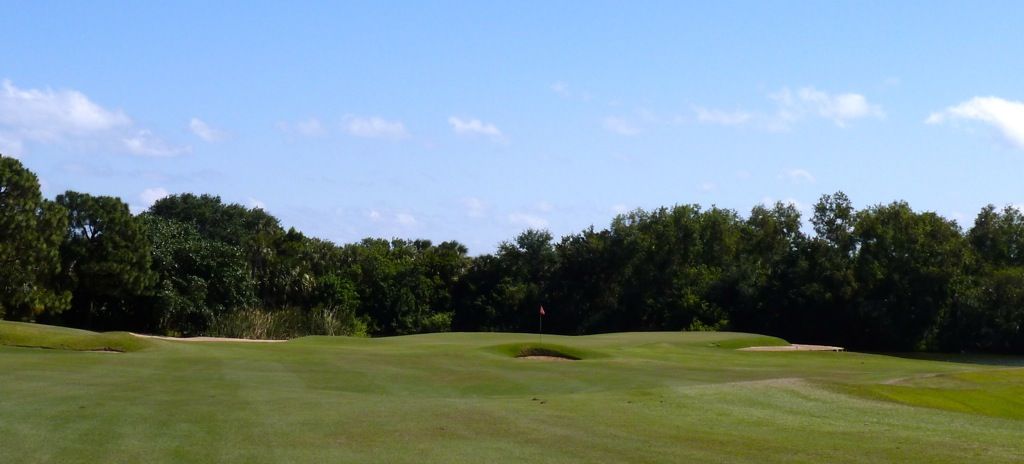Hobe Sound, Florida, United States
Architects: Pete and P.B. Dye (1988)
6,930 Yards, Par-72
Rating/Slope: 74.9/145
My Quick Review: Massive sandy waste areas, wild land movement -- this might be P.B. Dye's masterpiece
In The Confidential Guide, Tom Doak called this P.B. Dye's strongest work -- I have little experience with P.B. but if Loblolly is any indication of his work, then it is clear that he takes after his father. I believe Pete keeps the golfer engaged with a combination of temptation and angles, and that holds true at Loblolly (maybe even repetitively so).
The first hole gently bends to the left around one of many sandy waste areas on property. This hole is a gentle start, depending on wind direction, and is of the reverse-dogleg variety.

The second hole is a mid-length par-3 that is remarkably difficult. The combination of elevation change and wind make a small target even smaller. The day I played it, the hole measured 165 yards to the pin, but I was told I would need to hit a 190 yard shot. The hole is even more difficult when playing downwind as near any shot landing on the green will kick forward and into the back bunker.

The third and fourth holes are somewhat repetitive but are both very good holes. At the third the golfer must challenge a strategic carry bunker to leave himself with a reachable yardage into this very uphill green. Some would say this a half-par hole; I'd say it's more like 4.9!

The importance of challenging the long carry at the 4th is seen from the fairway -- approaches from the bold line need not carry the monstrous greenside bunker:

As seen from behind, this views gives an idea of the elevation change on the property:

Yet another diagonal carry from the tee on the 5th. Bunkering is perhaps overdone near the green?

By the time the golfer reaches the 6th hole, he is no doubt wondering when he will get a hole that plays straightaway -- not yet! A sweeping and long dog-leg right par-5 where the interest is found at the second and third shots. The golfer must choose whether to play to the shorter line or to leave a longer approach from a preferred angle.

The 7th hole is a 'we've all seen that before' par-3 over water, but with a far better than average green..

As seen from behind, the green is open in the front-right and a buried elephant in the right-side of the green allows clever golfer to get near left pins without challenging the water. Somewhat paradoxically, a back-right pin may be the most difficult.

Excellent strategic design at the par-5 8th, where playing over the longer carry will land the golfer on a turbo-boost and bring the green within reach in two.


The 9th is an excellent mid-length par-4 where the golfer is given a massive amount of room to play left from the tee, but only a bold tee shot that carries sandy waste area will leave a preferred angle of approach. The approach as seen from the left side of the fairway is nearly impossible to land on the green and have it stay there.


No comments:
Post a Comment